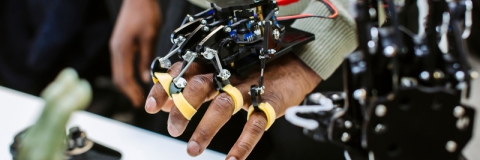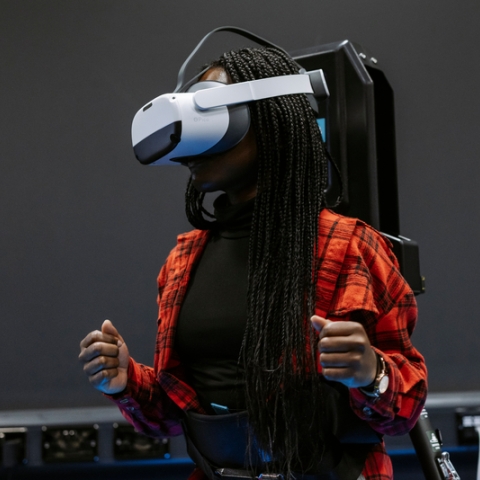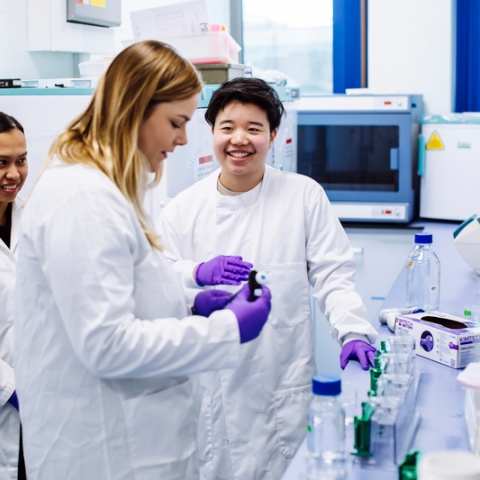

Our research areas of expertise
Delve deeper into the research work we're doing in our areas of expertise
Our research aims to make a difference to the world
Collaborative, multi-disciplinary and always relevant, our work seeks answers to big questions shaping the future of the planet and society.
We're already making an impact with several recent major breakthroughs – from the discovery of a new mutant enzyme that could help defeat plastic pollution, to pioneering work exploring the mysteries of the earliest moments of the Universe.
Browse our areas of expertise below and learn more about our research, our publication highlights and our research projects.
Research themes, centres and culture
Find out more about research at the University of Portsmouth.
Research themes
Our research themes aim to make a difference by confronting the major issues and challenges facing the planet and society.

Research groups and centres
Discover our research groups, centres, institutes, clusters, networks and labs, exploring pressing global issues and ground-breaking research.

Research and Innovation Culture
Find out more about the principles, values and aims that underpin our research culture here at the University of Portsmouth.

